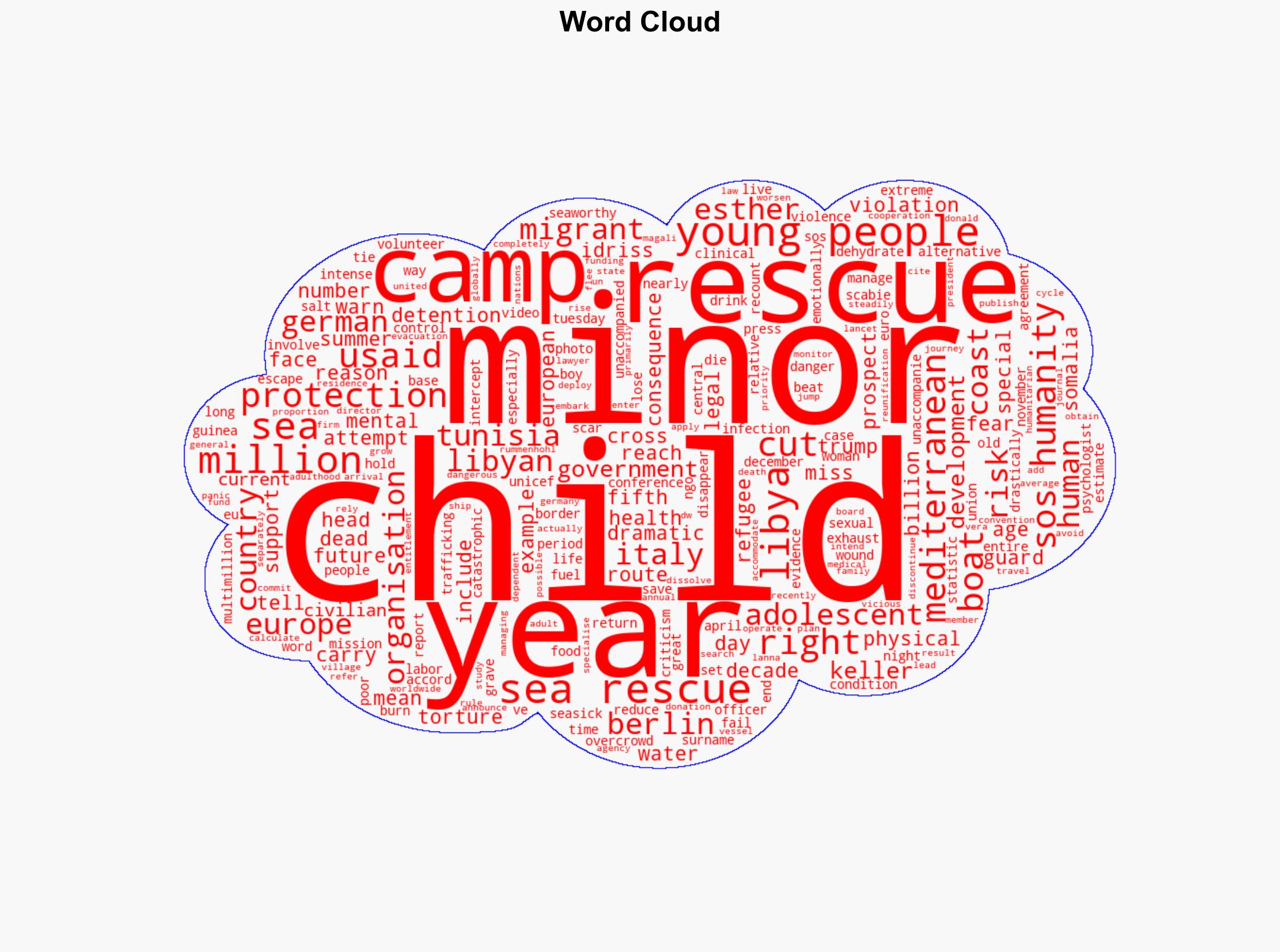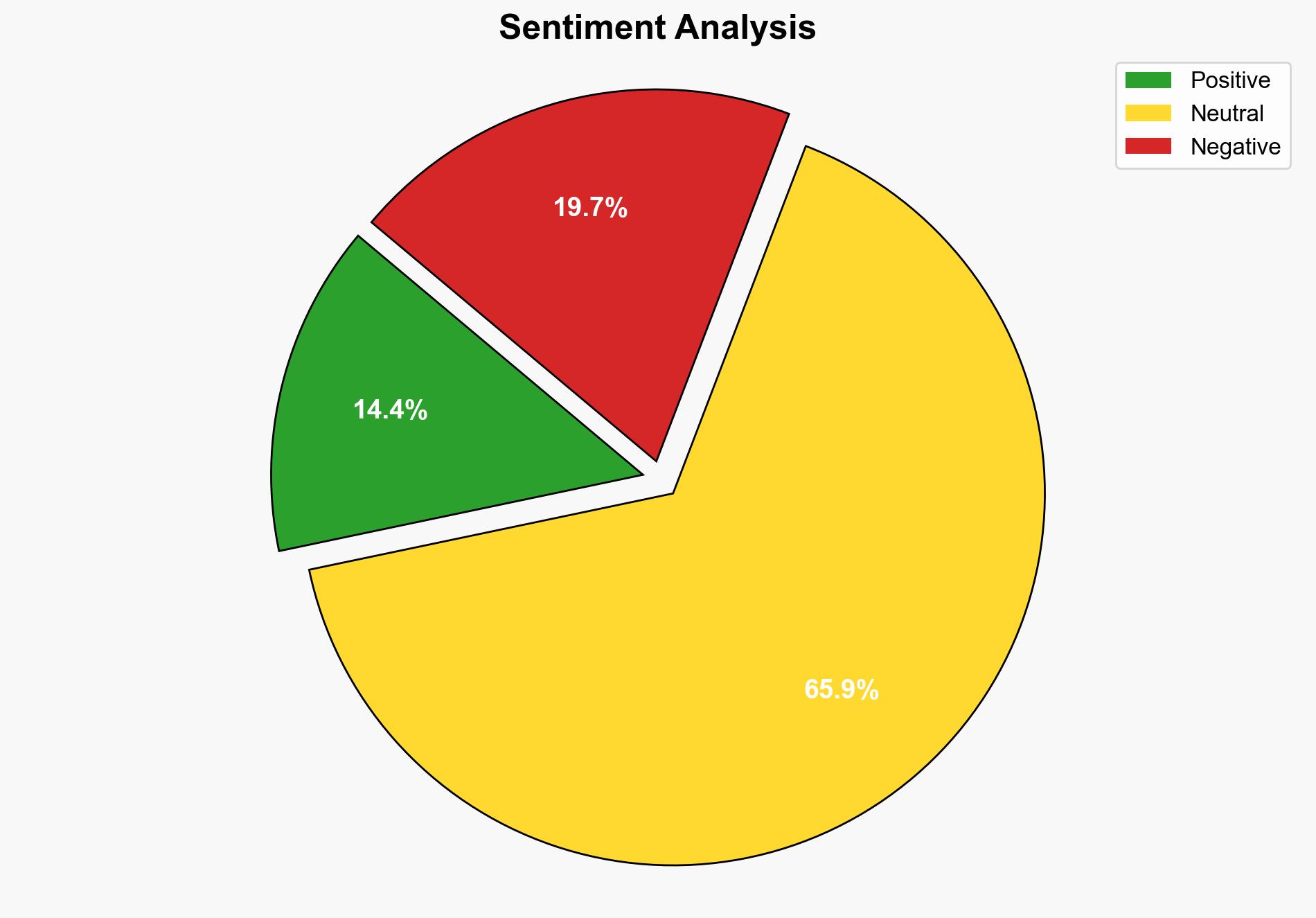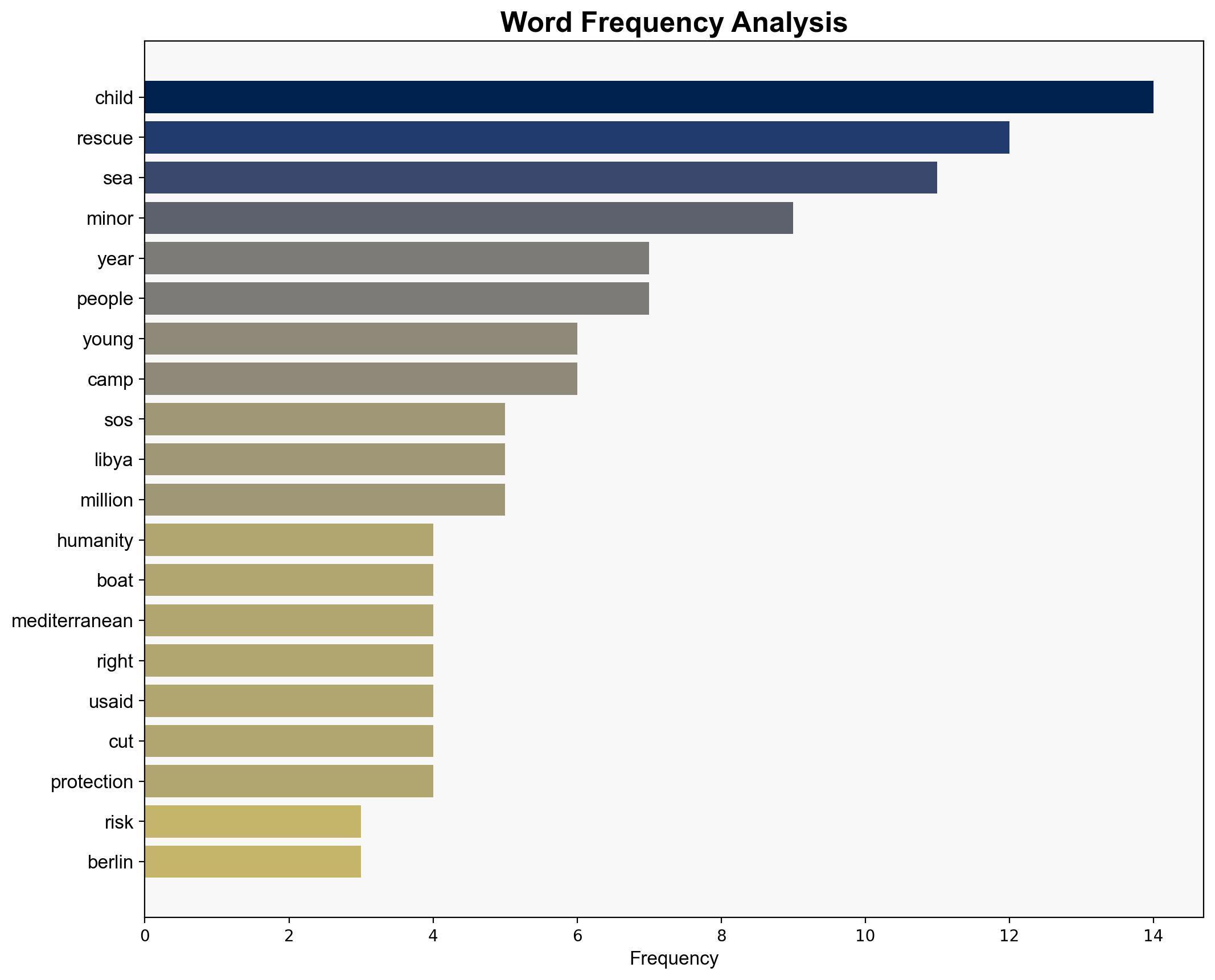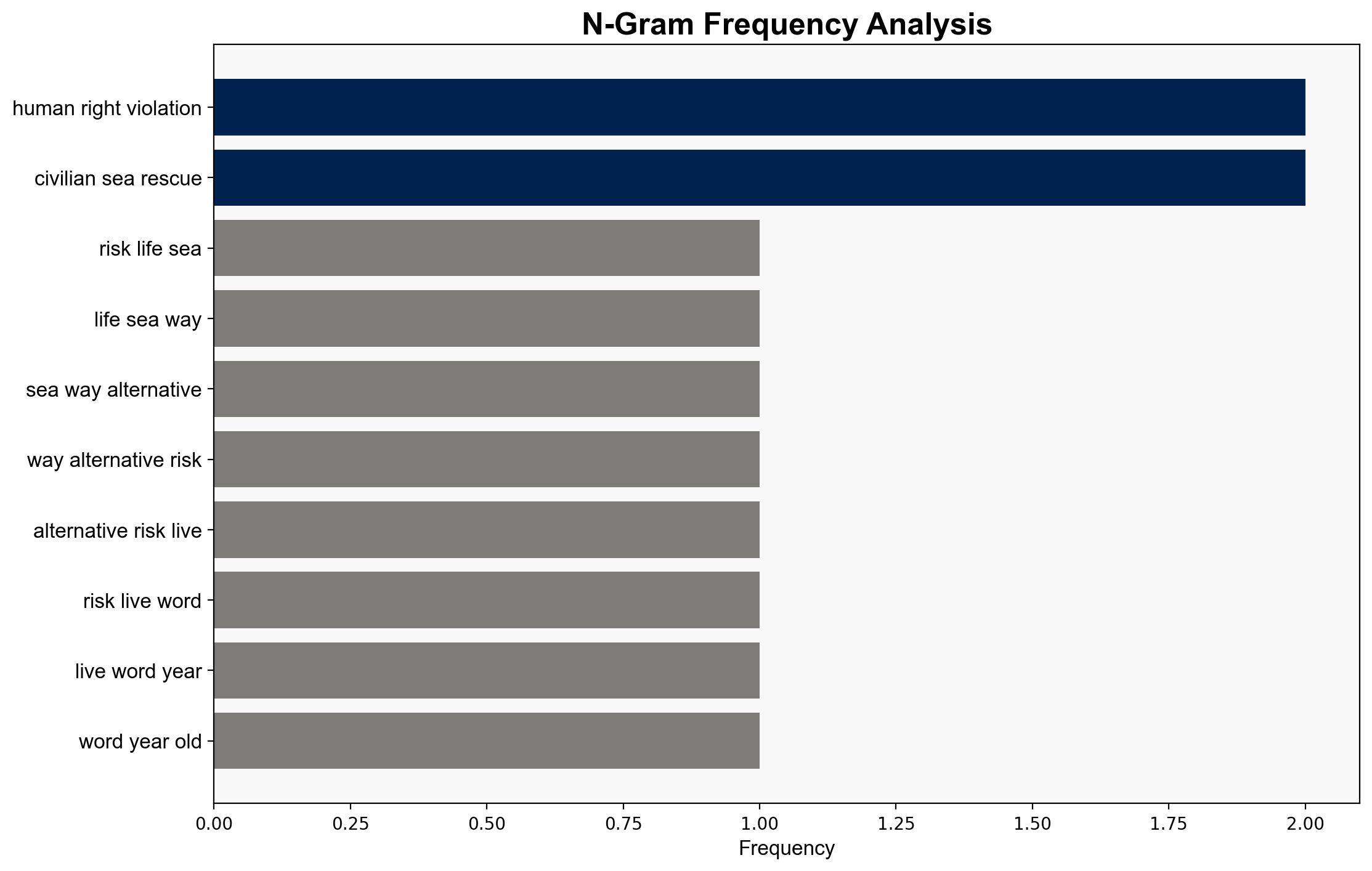Alone at sea unaccompanied refugee minors in mortal danger – The Times of India
Published on: 2025-10-27
Intelligence Report: Alone at sea unaccompanied refugee minors in mortal danger – The Times of India
1. BLUF (Bottom Line Up Front)
The most supported hypothesis is that the European Union’s cooperation with Libya and Tunisia on border control, coupled with reduced international aid, exacerbates the dangers faced by unaccompanied refugee minors attempting to cross the Mediterranean. Confidence level: High. Recommended action: Advocate for policy changes to enhance protection for minors and reassess EU border agreements.
2. Competing Hypotheses
1. **Hypothesis A**: The EU’s agreements with Libya and Tunisia are effective in reducing migrant numbers but inadvertently increase the risks for unaccompanied minors due to inadequate protection and human rights violations.
2. **Hypothesis B**: The primary driver of increased danger for unaccompanied minors is the reduction in international aid, particularly from the US, which forces more minors to attempt dangerous crossings due to deteriorating conditions in their home countries.
Using the Analysis of Competing Hypotheses (ACH) 2.0, Hypothesis A is better supported by the evidence of human rights violations and the specific mention of EU-Libya agreements leading to increased risks for minors.
3. Key Assumptions and Red Flags
– **Assumptions**: It is assumed that EU agreements are primarily responsible for the increased danger, without considering other geopolitical factors.
– **Red Flags**: Potential bias in reporting, as the source may emphasize human rights violations to advocate for policy changes.
– **Blind Spots**: Lack of detailed data on the effectiveness of EU border control measures and their direct impact on minors.
4. Implications and Strategic Risks
The continued cooperation with Libya and Tunisia poses significant human rights risks and could lead to increased international criticism of the EU. There is a potential for escalation in humanitarian crises if current policies remain unchanged. Economic and geopolitical tensions may rise if EU countries face increasing pressure to accommodate refugees.
5. Recommendations and Outlook
- **Mitigation**: Reevaluate EU agreements with Libya and Tunisia to incorporate stronger protections for minors.
- **Opportunities**: Collaborate with NGOs to enhance rescue operations and provide safe passages.
- **Scenario Projections**:
- **Best Case**: Policy reforms lead to reduced risks for minors and improved international relations.
- **Worst Case**: Continued violations result in severe humanitarian crises and diplomatic fallout.
- **Most Likely**: Incremental policy adjustments with ongoing challenges in implementation.
6. Key Individuals and Entities
– Esther, a German clinical psychologist involved in Mediterranean rescue missions.
– Lanna Idriss, head of SOS Children’s Villages Worldwide.
– Vera Magali Keller, heads a Berlin law firm specializing in humanitarian support.
7. Thematic Tags
national security threats, human rights, refugee crisis, EU policy, international aid





